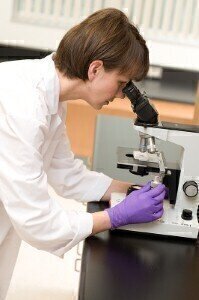News & Views
Over £7m has Been Announced for Two Research Projects
Apr 09 2012
Over £7million has been announced for two research projects aiming to make an important contribution to global
efforts to breed improved cereal crops. The projects, both funded by the Biotechnology and Biological Sciences
Research Council (BBSRC) hope to shed further light on the genomes of wheat and barley, the two most widely grown
cereal crops in the UK. Researchers hope that this will provide breeders with the tools to develop new varieties more quickly and efficiently and so help to provide sustainable and nutritious food for a growing world population.
The team investigating wheat includes researchers from John Innes Centre (JIC), The Genome Analysis Centre (TGAC) and Rothamsted Research (RRes) and the EMBL-European Bioinformatics Institute (EMBL-EBI) near Cambridge. The research into barley will be led by scientists at James Hutton Institute near Dundee with partners at TGAC and EMBL-EBI
The Genome Analysis Centre (TGAC) in Norwich will be used to work on both genomes as barley and wheat are closely related. Researchers aim to produce definitive, high-quality wheat sequence data by using the genome to unlock useful variation in multiple wheat varieties to support breeding and gene discovery. The new funding will also help the UK team to coordinate international efforts to derive a high quality barley genome sequence, to transform this genomic information into a platform to understand barley genetic traits and ultimately to enable isolation of the underlying genes.
Wheat and barley are the two most widely grown crops in the UK – wheat alone is planted on 60% of arable land – and they are of enormous value to the economy. However efforts to increase yields and to breed new varieties of these crops have not kept pace with other globally important cereals and this needs to be addressed if we are to feed a growing population sustainably.
Professor Douglas Kell, BBSRC Chief Executive, said “Cereals are the staple foods of most people around the world and, if we are to feed a growing world population of 7 billionpeople and counting, we need to increase yields at a greater rate than we are currently achieving. To do this we need to work smarter, providing breeders with detailed information about the genomes of important crops so they can breed in new traits more quickly and efficiently.”
Digital Edition
Lab Asia 31.2 April 2024
April 2024
In This Edition Chromatography Articles - Approaches to troubleshooting an SPE method for the analysis of oligonucleotides (pt i) - High-precision liquid flow processes demand full fluidic c...
View all digital editions
Events
May 05 2024 Seville, Spain
InformEx Zone at CPhl North America
May 07 2024 Pennsylvania, PA, USA
May 14 2024 Oklahoma City, OK, USA
May 15 2024 Birmingham, UK
May 21 2024 Lagos, Nigeria












.jpg)





